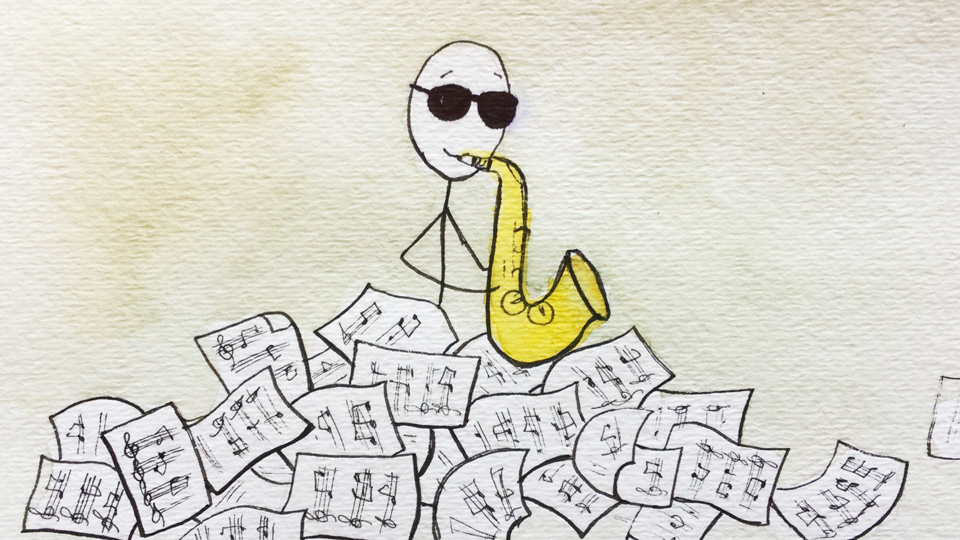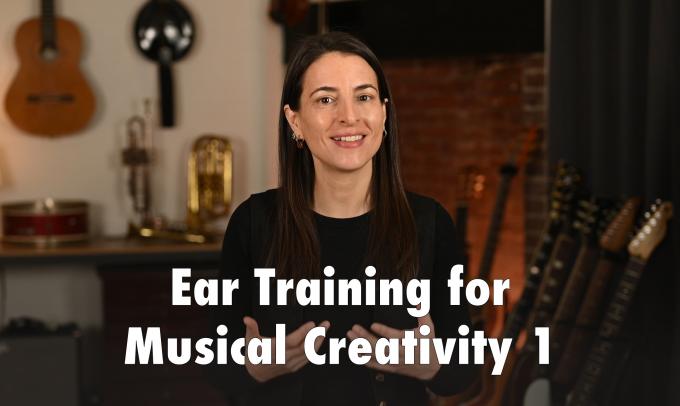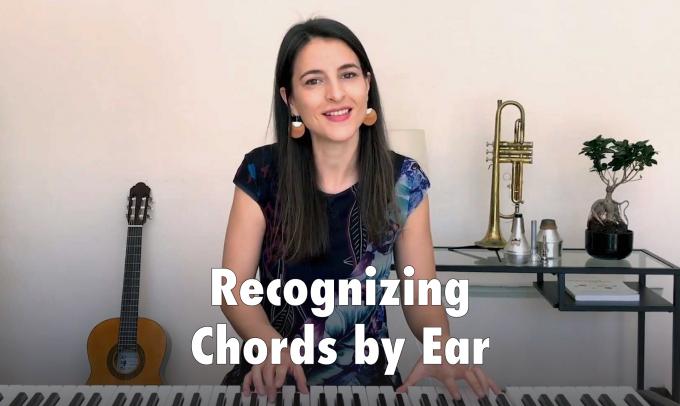Hi Mireia,
I recently purchased IFR's "Sing The Numbers 1" and have found it both meditative and useful in reinforcing my knowledge. I am also interested in further exploring the "Melody Paths" approach you teach on YouTube with the visuals for the chord tones.
I have a B.A. in music with a strong base in music theory, as well as using solfege. Musically, my goal is to develop a stronger ear with better melodic sensibilities, to create more freely on my instrument (guitar) and improve on my singing voice. I don't know if my musical experience is already beyond the level that your ear training video courses are designed for. Can you tell me the topics covered in each of your courses so I can decide if they would help me?
Best,
Devin
Mireia's response:
Hi Devin,
Thank you for writing. Let me explain what we do in each of my video courses so you can decide if one of them sounds right for you.
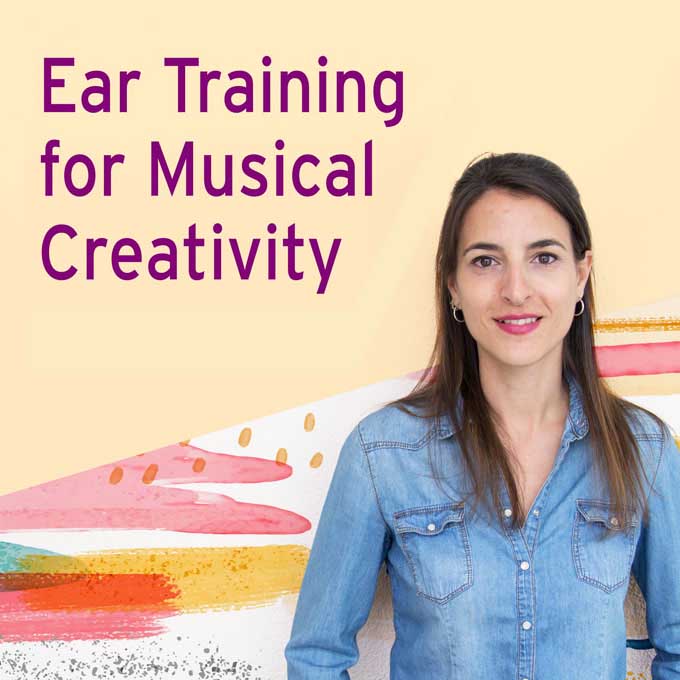 Ear Training for Musical Creativity. The best way to understand the content and objectives of this course is to think of it like a college course based on the syllabus which you already have in Sing the Numbers 1: The IFR Tonal Map. What's additional in the video course are the video lessons, song analysis videos, creative exercises, backing tracks and self-test tracks. So it's a much more intense and immersive experience than the audio course that you have, and most students spend about an hour a day with the activities. All of this energy is focused on learning to recognize the seven notes of the major scale in what we call the "first harmonic environment", which is when note 1 is acting as the tonal center. So the best way to decide if this course is right for you is to ask whether you can recognize all of the notes by ear in simple songs and melodies that are in a major key. If you do not yet have this ability and you want to master these sounds once and for all, this course is perfect for you.
Ear Training for Musical Creativity. The best way to understand the content and objectives of this course is to think of it like a college course based on the syllabus which you already have in Sing the Numbers 1: The IFR Tonal Map. What's additional in the video course are the video lessons, song analysis videos, creative exercises, backing tracks and self-test tracks. So it's a much more intense and immersive experience than the audio course that you have, and most students spend about an hour a day with the activities. All of this energy is focused on learning to recognize the seven notes of the major scale in what we call the "first harmonic environment", which is when note 1 is acting as the tonal center. So the best way to decide if this course is right for you is to ask whether you can recognize all of the notes by ear in simple songs and melodies that are in a major key. If you do not yet have this ability and you want to master these sounds once and for all, this course is perfect for you.
Note: You can click HERE for full details.
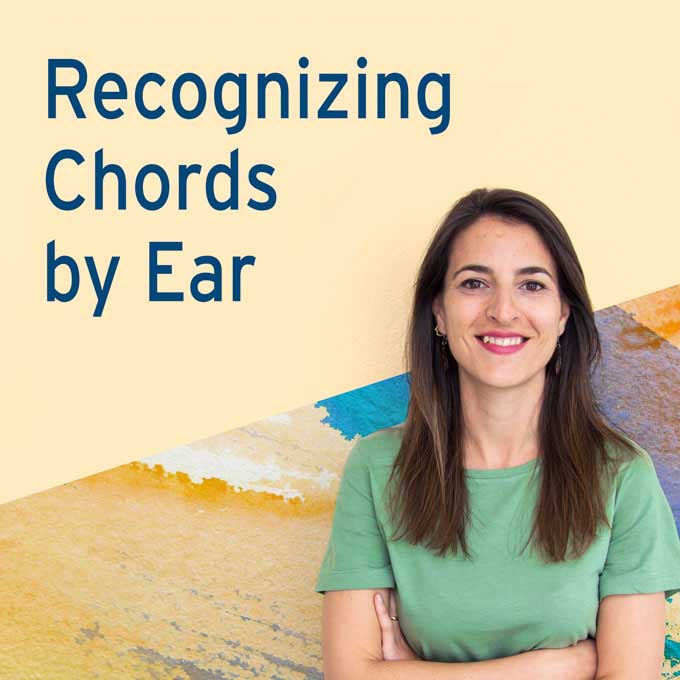 Recognizing Chords by Ear. In this video course you will learn to recognize chords and chord progressions by ear. Through a variety of creative exercises and listening activities, you'll discover the unique sensations produced by each chord. These sensations or harmonic functions are the primary way that we recognize chords by ear, and these sensations are already available inside of us. One of the exercises we will use is the "Melody Paths" singing exercise that you saw in my YouTube videos. In addition to the main lesson videos, there are also song analysis videos, creative exercises with your instrument, backing tracks and self-test tracks. You'll even do exercises where you'll harmonize famous melodies with your own choice of chords! The chords we'll be studying in this course are chords 1, 4, 5D and 6- from the major scale. These are the most important chords in all western music, and they also serve us as references for recognizing everything else. So the best way to decide whether this workshop is right for you is to ask whether you can already recognize chords 1, 4, 5D and 6- in the music all around you. If you have any doubts about your ability to recognize these four chords by ear, then this is exactly where you should start building your ability to recognize chords y ear.
Recognizing Chords by Ear. In this video course you will learn to recognize chords and chord progressions by ear. Through a variety of creative exercises and listening activities, you'll discover the unique sensations produced by each chord. These sensations or harmonic functions are the primary way that we recognize chords by ear, and these sensations are already available inside of us. One of the exercises we will use is the "Melody Paths" singing exercise that you saw in my YouTube videos. In addition to the main lesson videos, there are also song analysis videos, creative exercises with your instrument, backing tracks and self-test tracks. You'll even do exercises where you'll harmonize famous melodies with your own choice of chords! The chords we'll be studying in this course are chords 1, 4, 5D and 6- from the major scale. These are the most important chords in all western music, and they also serve us as references for recognizing everything else. So the best way to decide whether this workshop is right for you is to ask whether you can already recognize chords 1, 4, 5D and 6- in the music all around you. If you have any doubts about your ability to recognize these four chords by ear, then this is exactly where you should start building your ability to recognize chords y ear.
Note: You can click HERE for full details.
I hope this helps you decide if one of these courses would be the right next step for you.
Thanks Devin,
Mireia
